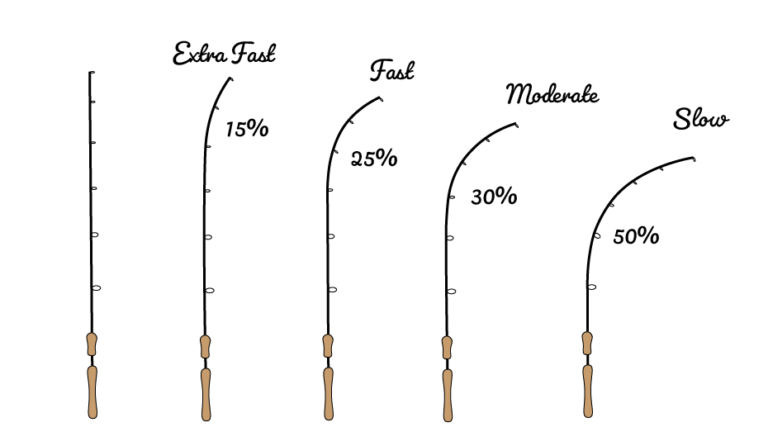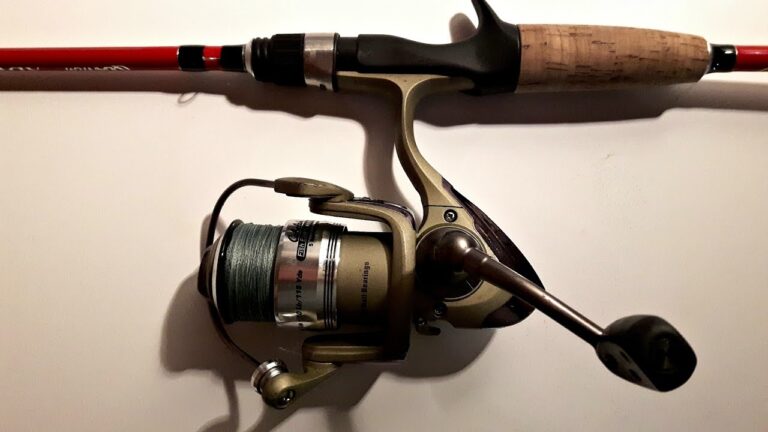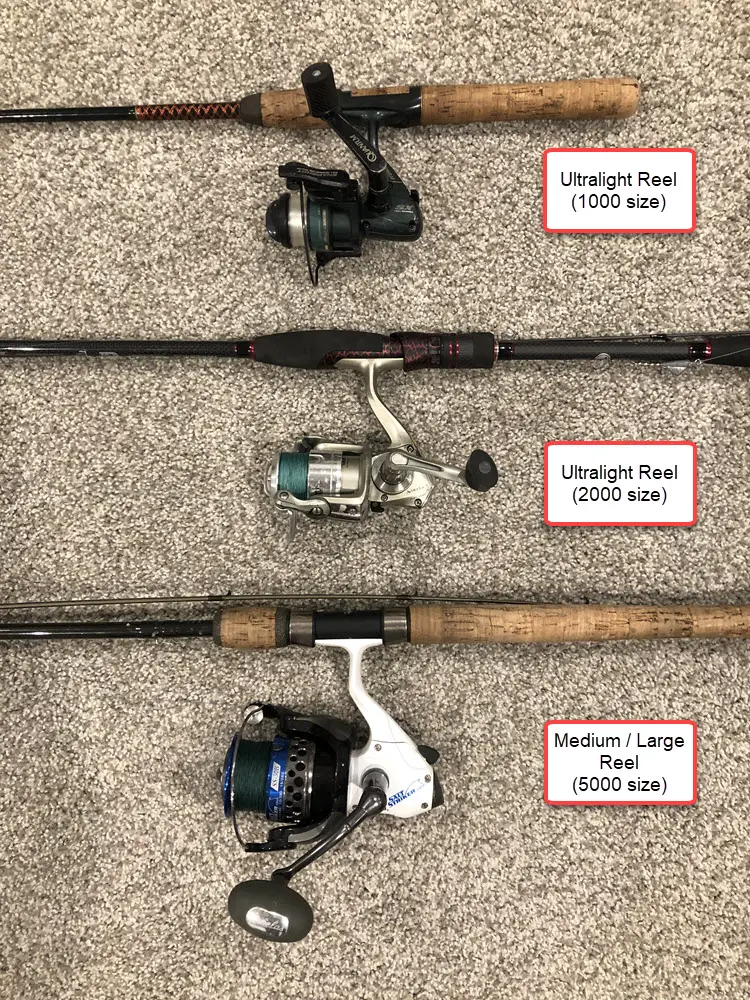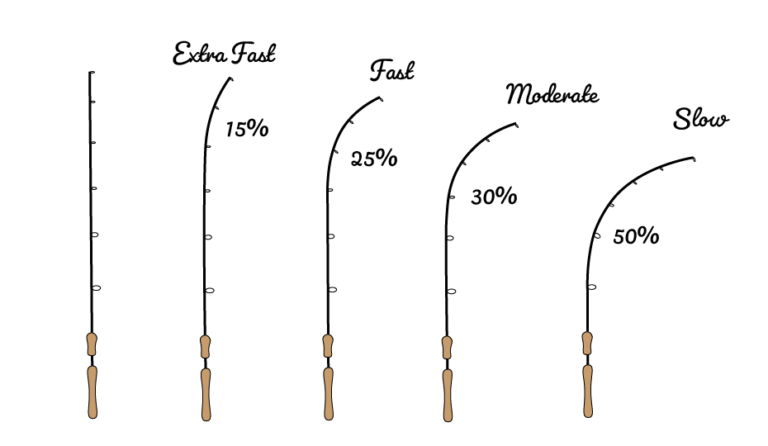How to Cast Far With a Baitcaster
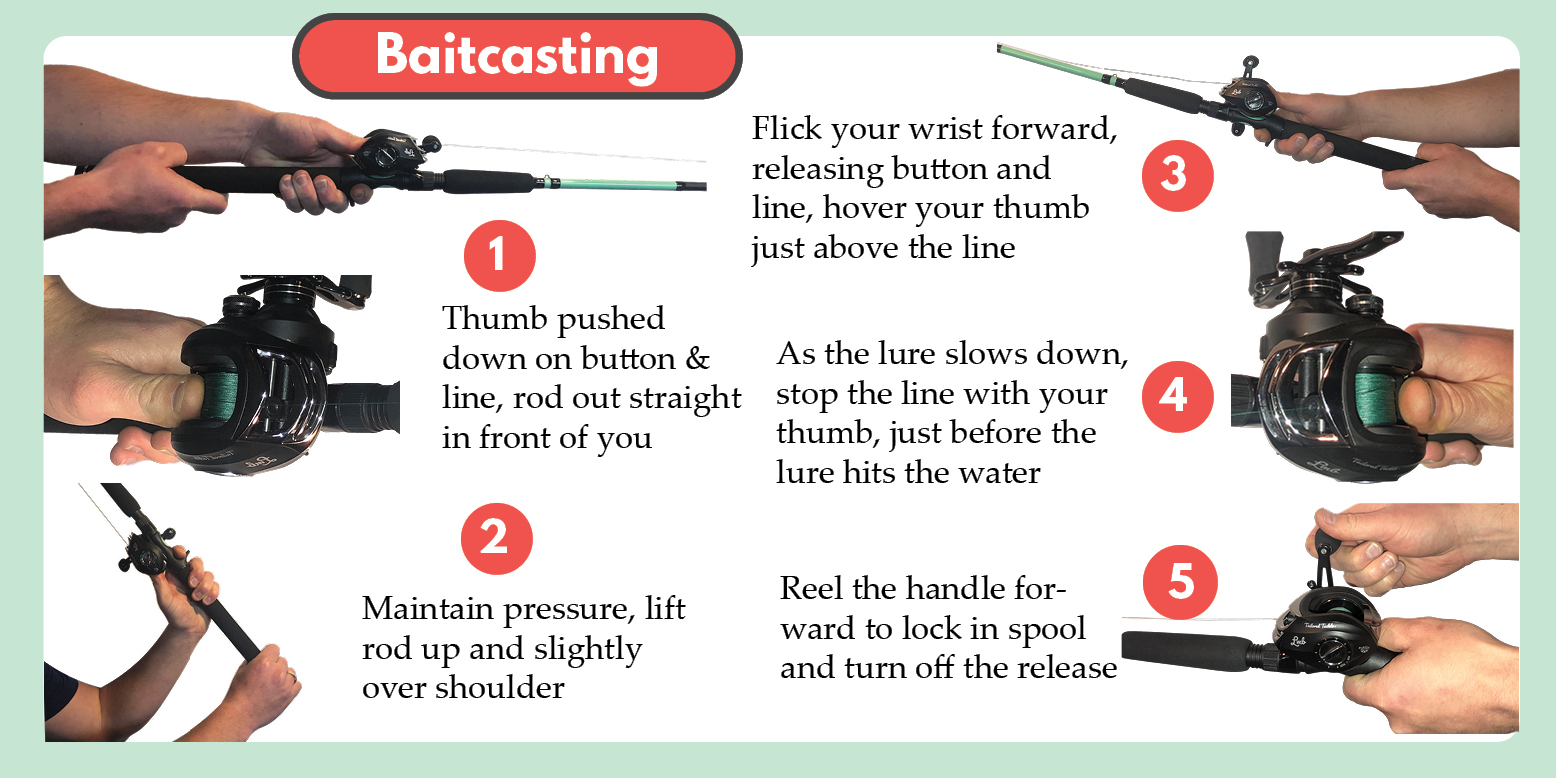
To cast far with a baitcaster, adjust the brake system and practice your thumb control. Optimize the spool tension for the weight of your lure.
Angling enthusiasts often pursue the mastery of using a baitcaster for its precision and control. Achieving distance can elevate your fishing game, making it essential to configure your baitcaster correctly. This involves fine-tuning the equipment’s settings and developing the right technique.
Success hinges on the synergy between your reel’s mechanical adjustments and your casting motion. A well-setup baitcaster, paired with the angler’s proficiency in managing the spool’s speed with their thumb, often results in longer, smoother casts. This skill not only allows anglers to cover more water but also to reach those elusive spots where the big catch might be hiding. Whether you’re competing in tournaments or simply enjoying a day on the water, optimizing your baitcaster’s performance is key to an effective casting experience.

Credit: www.onthewater.com
Mastering The Basics Of Baitcaster Reels
Casting far with a baitcaster relies on understanding its parts. The spool, which holds the line, and the handle, for reeling in, are key. A braking system controls the spool speed, preventing tangles.
The drag system adjusts the resistance against a hooked fish. Properly using these parts is pivotal for distance. Practice with the baitcaster enhances performance. Aim to master the reel’s tension knob for optimal control.
| Part | Function |
|---|---|
| Spool | Holds fishing line |
| Handle | Used for reeling |
| Brake | Controls spool speed |
| Drag | Sets resistance |

Credit: www.wired2fish.com
Setting Up Your Baitcaster For Maximum Distance
Choosing the right fishing line is crucial for casting far with a baitcaster. Thin, durable lines reduce friction and allow for longer casts. Opt for low-diameter lines because they are lighter and can travel further distances. A braided line often gives the best performance for this purpose. It’s strong and offers minimal stretch, which is perfect for a good cast.
For adjusting the spool tension, start by tightening the knob until it feels snug. Then, release a lure to see if it falls smoothly. The goal is to have the lure slowly descend without causing backlash.
Fine-tuning the brakes on your baitcaster requires patience. Begin with the brakes set to a higher level to prevent backlash. Gradually lower the brake setting as you become more comfortable with casting techniques. This allows for longer casts while maintaining control over the lure’s flight.
Casting Techniques For Distance
Mastering the Overhead Cast starts with proper technique. Stand with your feet shoulder-width apart. Hold the baitcaster firmly and pull the rod back over your shoulder. Snap it forward quickly in a smooth motion. Release the line at the right moment; practice will hone this skill. This method helps achieve long-distance casts.
For the Sidearm Cast, use a similar stance. But this time, swing the rod horizontally. Aim slightly upward to give the lure an arc. Again, a quick flick and timely release are key, perfect for tight spots with low clearance.
Choose your lures wisely for the best casting distance. Heavy lures fly farther than light ones. But it’s a balance – too heavy and your accuracy may suffer. Aerodynamic shapes also cut through the air better, adding crucial feet to your cast.
Common Mistakes And How To Avoid Them
Avoiding backlashes is crucial for successful baitcaster use. A common error is not setting the spool tension properly. To prevent this, adjust the spool tension knob until there is minimal spool movement. Next, practice smooth casting motions. Quick jerks or stops often cause the spool to spin faster than the line can travel. Resulting in tangled line known as a backlash.
To correct improper spool tension, start by tightening the knob. Release it gradually during your cast. This helps in achieving greater distances. Additionally, make sure your thumb is always in contact with the spool. It acts as a brake to control line flow.
Refining your technique with a baitcaster involves more than just practice. Pay attention to your rod angle and casting motion. Both should be smooth and consistent. Also, the lure weight should match the recommended specifications of your baitcaster.
Advanced Tips And Tricks
Mastering the impact of weather and wind significantly augments casting distance. A tailwind enhances your cast, while a headwind challenges it. Adapt your technique by using the wind’s power. Position yourself to leverage the wind accordingly, and modify the cast angle.
Gear ratios dictate the speed and efficiency of line retrieval. High gear ratios mean faster retrieves, perfect for quick lures. Conversely, lower gear ratios provide more power for a longer cast. It’s crucial to match the gear ratio to the casting technique and target species.
Rod action and length are pivotal for casting precision and distance. A longer rod offers a wider casting arc, increasing potential distance. Fast-action rods, which bend near the tip, provide a snappier cast for heavier lures. Select a rod that complements your casting style and lure choice for optimal results.
Maintaining Your Equipment For Optimal Performance
Regular cleaning and lubrication are foundational for baitcaster longevity. Dirt and grime impair performance. Thus, a routine clean-up keeps mechanisms running smoothly. Apply oil to moving parts sparingly. Check for grit in the reel after outings. Use gentle brushes and cloths designed for fishing gear.
Inspecting and replacing line prevents failures during casts. Over time, lines weaken and memory increases, causing tangles. Examine your line for nicks, frays, or signs of wear. Replace it with a fresh one frequently, especially if you fish often or in abrasive environments.
For the subheading Upgrading components, consider better bearings or a lighter spool. High-quality bearings reduce friction, enhancing cast distance. A lighter spool starts and stops faster, allowing for longer casts. Research and invest in upgrades suited to your casting style and target species.

Credit: m.youtube.com
Frequently Asked Questions For How To Cast Far With A Baitcaster
How Do You Make A Baitcaster Cast Farther?
To cast farther with a baitcaster, adjust the spool tension for the lure weight. Use a longer rod to increase casting distance. Choose a thinner, quality line to reduce resistance. Ensure the brake system is properly tuned, and practice your casting technique for optimal performance.
Why Can’t I Cast Far With My Baitcaster?
Difficulty casting far with a baitcaster can result from a poorly adjusted brake system, mismatched lure weight, tangled line, inadequate spool tension, or poor casting technique. Fine-tuning your reel settings and practicing casting can significantly improve your distance.
How Do I Get More Distance Out Of My Baitcaster?
To maximize baitcaster distance, select a suitable rod, use thinner line, adjust the spool tension properly, practice smooth casting techniques, and maintain your reel regularly for optimal performance.
How Do You Increase Casting Distance?
Use a longer rod for increased leverage. Select lightweight, aerodynamic lures. Master a smooth, forceful casting technique. Employ a thin, quality line for less drag. Regularly clean and lubricate your reel for optimal performance.
Conclusion
Mastering the art of long-distance baitcasting boils down to technique, practice, and gear. Embrace the tips shared, and invest time in perfecting your cast. Persistence pays off, leading to those enviable long, precise throws every angler strives for. So, gear up, get out there, and watch your bait soar like never before!
